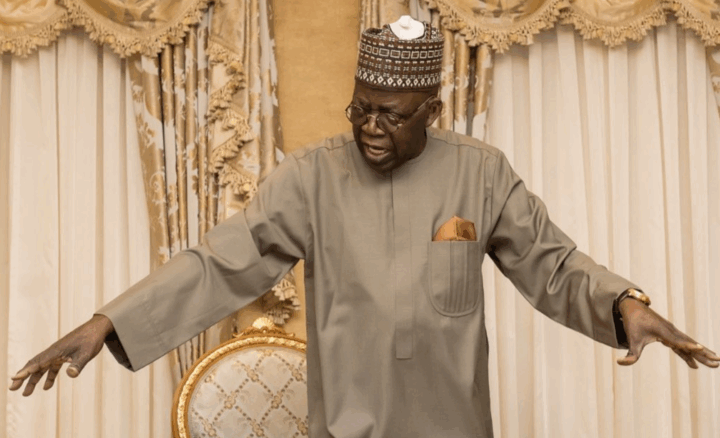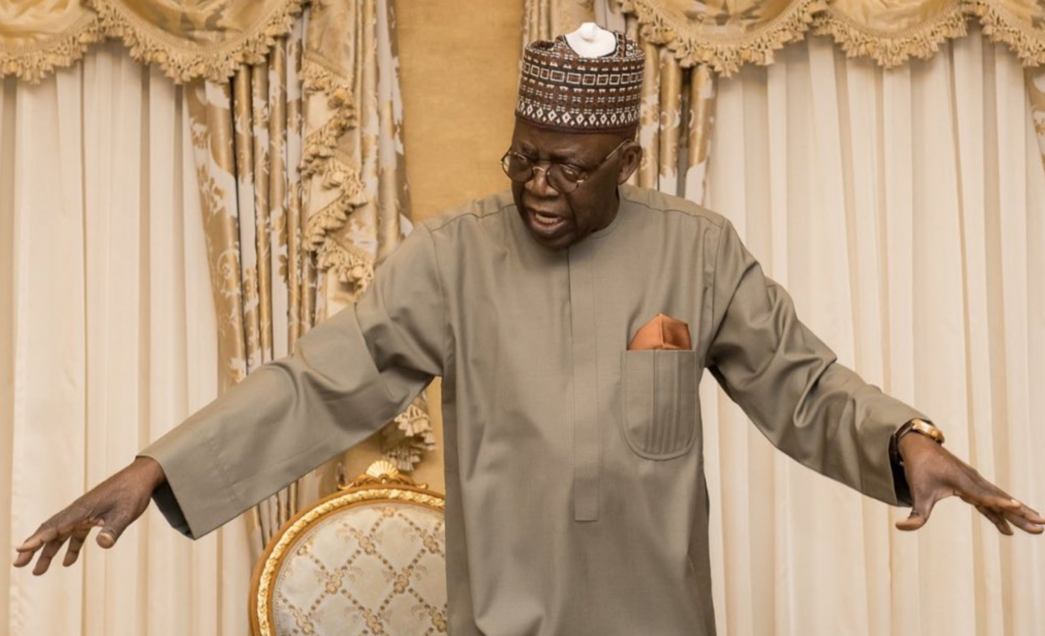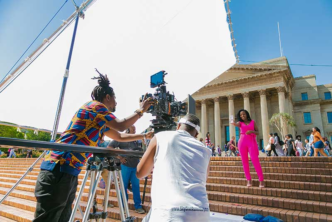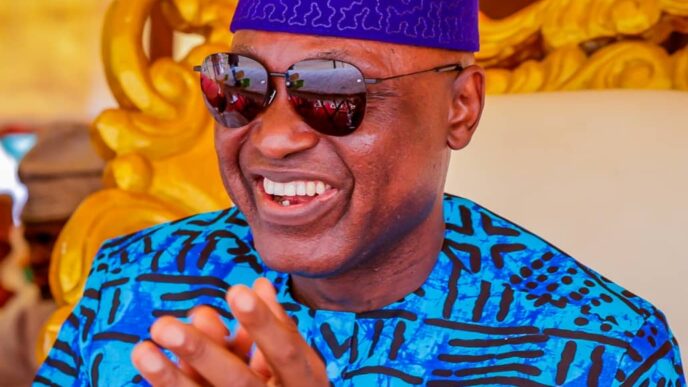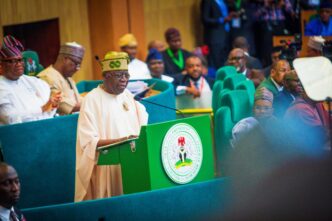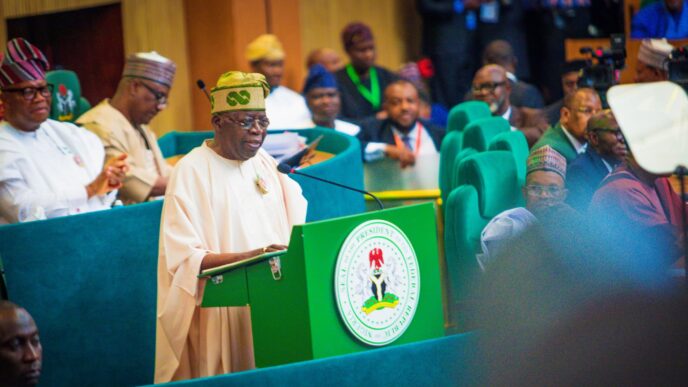Bola Tinubu | File photo
BY CYNTHIA AREH
In a move that sent shockwaves through Nigeria’s sports sector, President Tinubu’s decision to scrap the standalone Ministry of Sports Development might have inadvertently dealt wild cards to one of Nigeria’s fastest-growing industries – sports betting. With over ₦2 trillion in annual revenue and millions of young Nigerians actively engaged, the betting industry’s fate now hangs in a curious balance as sports administration undergoes structural transformation.
Veteran sports broadcaster and producer, Toyin Ibitoye, is anything but shocked. He recalls that this is not the first time a Nigerian government has made such a move and explains that the rationale might be an indirect admission of the Tinubu administration’s pockets not being deep enough to shoulder the responsibility: “We are talking about the structure of sports development in Nigeria- the desire of the government to move into new areas of sports administration and focus on grassroots development and also get a lot of private sector development. This is because it’s becoming increasingly difficult for the government to solely improve sports while shouldering the responsibilities of improving other crucial sectors like health, education and defence. The National Sports Commission (NSC) is in place to develop a relationship with the private sector to improve funding, corporate governance, efficiency and make sports more profitable by developing a strong ecosystem for sports.”
The Nigerian i-gaming industry is relatively new compared to the NSC which dates back to 1910 when the Empire Day competition first commenced. The last time it was dissolved was in 2015, during the Muhammadu Buhari administration. Now that it has been resurrected by the Tinubu administration, the expectations are high. Ibitoye makes it clear that he expects the commission to draw a significant correlation between the i-gaming industry and the sports industry – especially when taking into consideration the glaring inroad which i-gaming has made into sports and the level of empowerment which echoes throughout the industry.
The ministry of sports is renowned for the abundance of technical knowhow, unfortunately this does not always translate to effective implementation. Ibitoye explains that the problem which the ministry of sports has often faced is that of leadership direction. However, he is optimistic that ‘there are still competent and knowledgeable people with institutional knowledge in the sports ministry that can be useful to the NSC.’ He recommends that such individuals be absorbed and given leadership roles- as long as the individuals in question can align their goals with the leadership of the NSC.
Advertisement
An idealistic sports commission is one which is grassroot centered and according to Ibitoye’s standards, this is what the commission should be focused on. This would translate to the development of more home-grown talent and would ultimately lead to more bets being placed on ‘made in Nigeria’ players. He wants to see intentionality in locating these young talents at a tender age, training them and polishing them in order to turn them into “champions and world record holders that play at the highest level at their different fields.”
In spite of the absence of facilities and roads which are often non-motorable, Ibitoye is keen on seeing this commitment displayed by the NSC, as these talents are worth every form of inconvenience that may be encountered by the commission:
God has bestowed talent on everybody but it’s the task of administrators to ensure that those talents which are hidden in these kids, find a way of being expressed. That’s what I want the NSC to achieve this time around.
Advertisement
Some concerns have been raised that this merged ministry could slow down the pace in addressing time sensitive matters like match-fixing and betting integrity. In order to prevent this, Ibitoye makes a clarion call for a ‘watertight system’ that is swift to prosecute offenders, as this would not only serve as a deterrent to aspiring offenders, but sends a message about Nigeria’s dedication to the preservation of our sports structure: “No society is void of crime or manipulation, the difference is in the structures that are put in place to ensure that rules are not broken and when they are, the punishment is meted out in a timely manner. This speaks to the corporate governance of sports, if the integrity of sports is taken away, then sports is dead. If corners can be cut and the system is circumvented, then sports is dead. That’s what the NSC needs to do as well as the stakeholders. There is a thin line between fairness and cutting corners and once that line is crossed, the offenders must be dealt with,” Ibitoye said.
When it comes to the problem of administrative bottlenecks, Ibitoye is far from alarmed and explains that on the road to progress, there is a high likelihood for new problems to surface while old ones are being addressed. However, Ibitoye insists that ‘as long as problems are solved in a creative way and the solutions outweigh the problems, we must keep at it.’
As stated earlier, Ibitoye is of the opinion that with the numerous sectors which need work including the economy, healthcare, etc., the government is too overwhelmed to be solely entrusted with the responsibility of the development of the sports sector. Based on this, Ibitoye calls on the private stakeholders to take on their roles responsibly. He also thinks that the profit- driven nature of the private sector gives it an edge: “The private sector has the funds, we have the sports, we can merge the two to produce sports that will drive the numbers and give the private sector the benefits which it seeks. The private sector is not Santa Claus, they work with you because they believe there is a value which they can derive from you. We have to also ensure that they are getting the value for whatever role they play as they are profit oriented, numbers driven and they also want to impact a larger percentage of the society. That’s why it’s key that we put these structures in place so it’s not just a marriage of convenience but one that benefits both parties at the end of the day.”
As Nigeria’s sports landscape stands at a critical crossroads, the merger of sports ministries and the potential synergy between the National Sports Commission and the burgeoning i-gaming industry could herald a transformative era. The roadmap is clear: nurture grassroots talent, embrace private sector dynamism, and create robust governance structures. With visionary leadership and strategic collaboration, Nigeria has the potential to turn its sports ecosystem from a fragmented landscape into a vibrant, globally competitive powerhouse that not only generates revenue but also inspires a generation of world-class athletes and entrepreneurs. The game is changing, and Nigeria might just be on the cusp of writing its most exciting sporting narrative yet.
Advertisement
Areh, an international broadcast journalist, writes from Lagos
Views expressed by contributors are strictly personal and not of TheCable.
